Second-hand Success
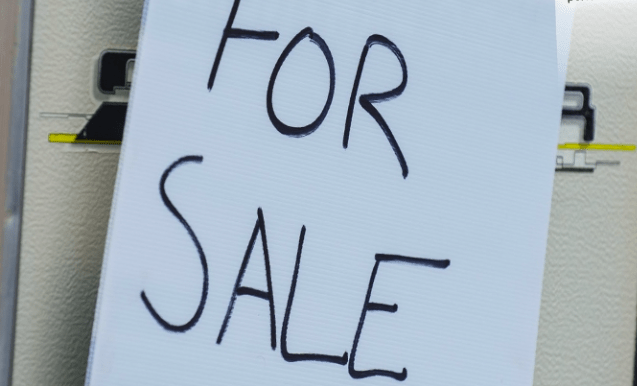
Scouring the used-camper market for the trailer of your dreams? Well, here are a few tips to ensure you don’t buy a lemon!
If you are dead-set serious about buying the trailer, ask the seller to set it up with you
Opting for a second-hand camper trailer as opposed to a brand-new model can be a great to save your hip pocket. However, it isn’t a risk-free option. You see, without the assurance of a warranty period there’s always the danger of buying yourself a lemon, which can easily turn into a fair dinkum money pit in the long run. The good news is, a little bit of knowledge can go a long way to saving you thousands of dollars in the long run, especially when you learn exactly what the tell-tail signs are of potentially hidden problems with costly repairs. With that in mind, we thought we’d share a bit of the wisdom we’ve learnt over the years when it comes to finding that perfect second-hand camper.
Is it Complete?
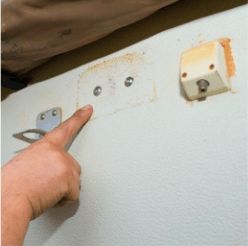 It’s not uncommon for a second-hand camper trailer to be missing a few bits and bobs. It may be a part of the canvas awning that the owner has lost over time, or maybe the internals cushions aren’t complete. Have a good look around the entire trailer for empty bolt holes, which may indicate something has been removed. It’s a good idea to get familiar with the camper trailer you are looking to purchase, so you have a good idea around what accessories it come standard with as some models came out with tables, additional benches, portable hot-water systems and the like. Oh, and if you are dead-set serious about buying the trailer, ask the seller to set it up with you so you to ensure everything is in good working order.
It’s not uncommon for a second-hand camper trailer to be missing a few bits and bobs. It may be a part of the canvas awning that the owner has lost over time, or maybe the internals cushions aren’t complete. Have a good look around the entire trailer for empty bolt holes, which may indicate something has been removed. It’s a good idea to get familiar with the camper trailer you are looking to purchase, so you have a good idea around what accessories it come standard with as some models came out with tables, additional benches, portable hot-water systems and the like. Oh, and if you are dead-set serious about buying the trailer, ask the seller to set it up with you so you to ensure everything is in good working order.
Rust
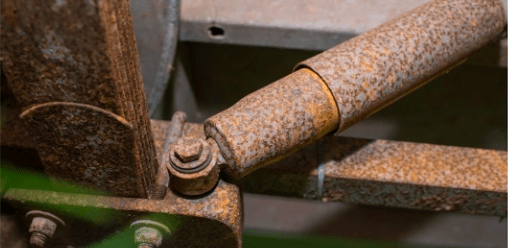 Perhaps the most difficult to repair of all the potential trailer problems out there is rust. You see, saltwater ingress is quite common among camper trailers, and given time it will cause corrosion that will literally eat a camper trailer from the inside out. The problem is if rust is affecting anything structural it will need to undergo potentially costly repairs. In fact, repair costs can be higher than the trailers value if it’s bad enough. So, it kind of makes sense to put plenty of effort into your search for corrosion, eh? Be sure to check as far as you can see inside the chassis, and don’t be afraid to ask the owner where it has been towed so you can get a better idea of the trailer’s history.
Perhaps the most difficult to repair of all the potential trailer problems out there is rust. You see, saltwater ingress is quite common among camper trailers, and given time it will cause corrosion that will literally eat a camper trailer from the inside out. The problem is if rust is affecting anything structural it will need to undergo potentially costly repairs. In fact, repair costs can be higher than the trailers value if it’s bad enough. So, it kind of makes sense to put plenty of effort into your search for corrosion, eh? Be sure to check as far as you can see inside the chassis, and don’t be afraid to ask the owner where it has been towed so you can get a better idea of the trailer’s history.
Underbody Inspection
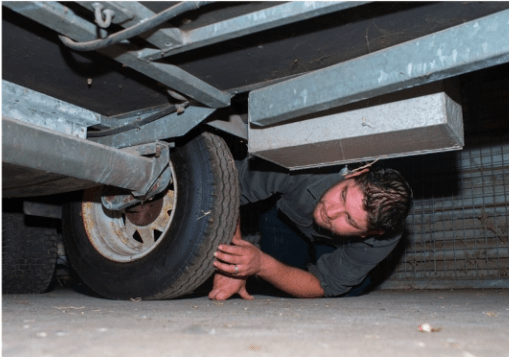 While you’re under the camper looking for rust, pay particular attention to the condition of the suspension components. Look at how well the suspension mounts are holding up and check the suspension bushes for cracking or signs of fatigue. If the camper has shock absorbers fitted, inspect them for any oil leaks or physical dents and damage, too. Naturally, if you spot any electrical wiring or plumbing underneath, you’ll want to ensure it’s all looking nice and healthy.
While you’re under the camper looking for rust, pay particular attention to the condition of the suspension components. Look at how well the suspension mounts are holding up and check the suspension bushes for cracking or signs of fatigue. If the camper has shock absorbers fitted, inspect them for any oil leaks or physical dents and damage, too. Naturally, if you spot any electrical wiring or plumbing underneath, you’ll want to ensure it’s all looking nice and healthy.
Rolling Gear
While it’s very unlikely you’ll get a chance to actually tow the camper trailer before you purchase it, there are a few things to look for that will give you an idea around it’s towing characteristics. For example, take a close look at the condition of the tyres. Sure, they should be in great condition with plenty of tread and no cracks or damage, especially to the sidewall, but look a little deeper to see how the tread is wearing to. Excessive wear on the edges of the tyre could indicate a wheel alignment issue of some sort.
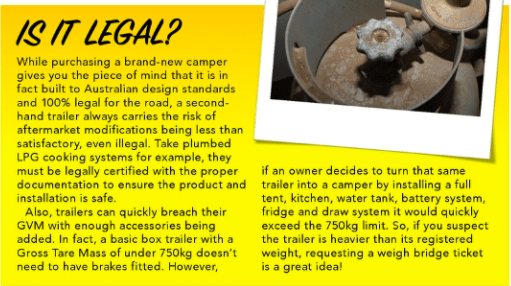
Tell-Tail Signs
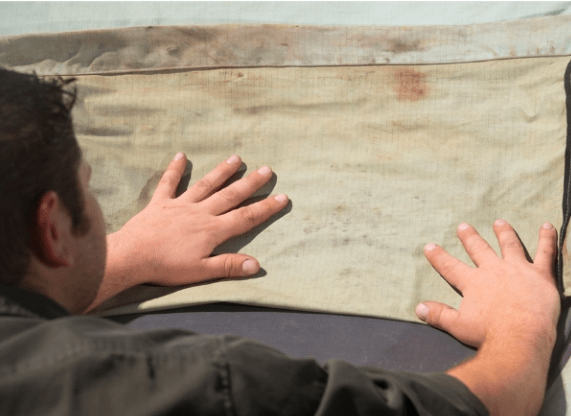
Naturally, we’re going to look at the general condition of the camper trailer, its canvas, and its accessories, but sometimes a well-presented unit can have hidden problems that need to be uncovered. Like water leaks for example. If water has been getting inside your camper it can be causing all sorts of problems, especially if you have any sort of timber linings or cabinetry. So, be sure to look for any stains or discoloration that could indicate a damp area particularly around the corners of the roof or around the windows where the seal may be broken.
Let’s Talk 12V
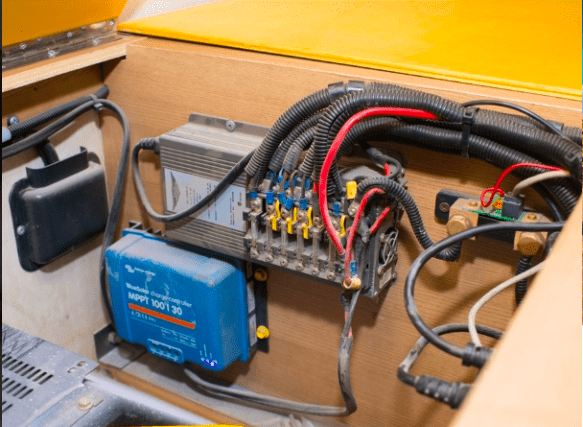
DIY 12V upgrades are a common occurrence in the camper trailer world, but they’re also the leading cause for fires too. Yep, there’s no real rules or regulations to stick to here from a legal front, which means the quality of the installation is left to the mercy of the current owner. So, when you pop the
hood of the electrical box, you really want to see a nice and neat wiring installation with fused circuits. Everything should be mounted securely, including the batteries. If any of the wiring shows signs of getting hot, like dark marks on the insulation it’s a cause for concern. Like wise for random exposed wires and dodgy looking connections and the owner in the background saying, “I had fun learning how to do electrical”.
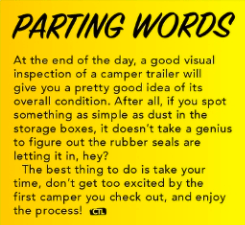
Repair costs can quickly become higher than the trailer value if they’re bad enough.
